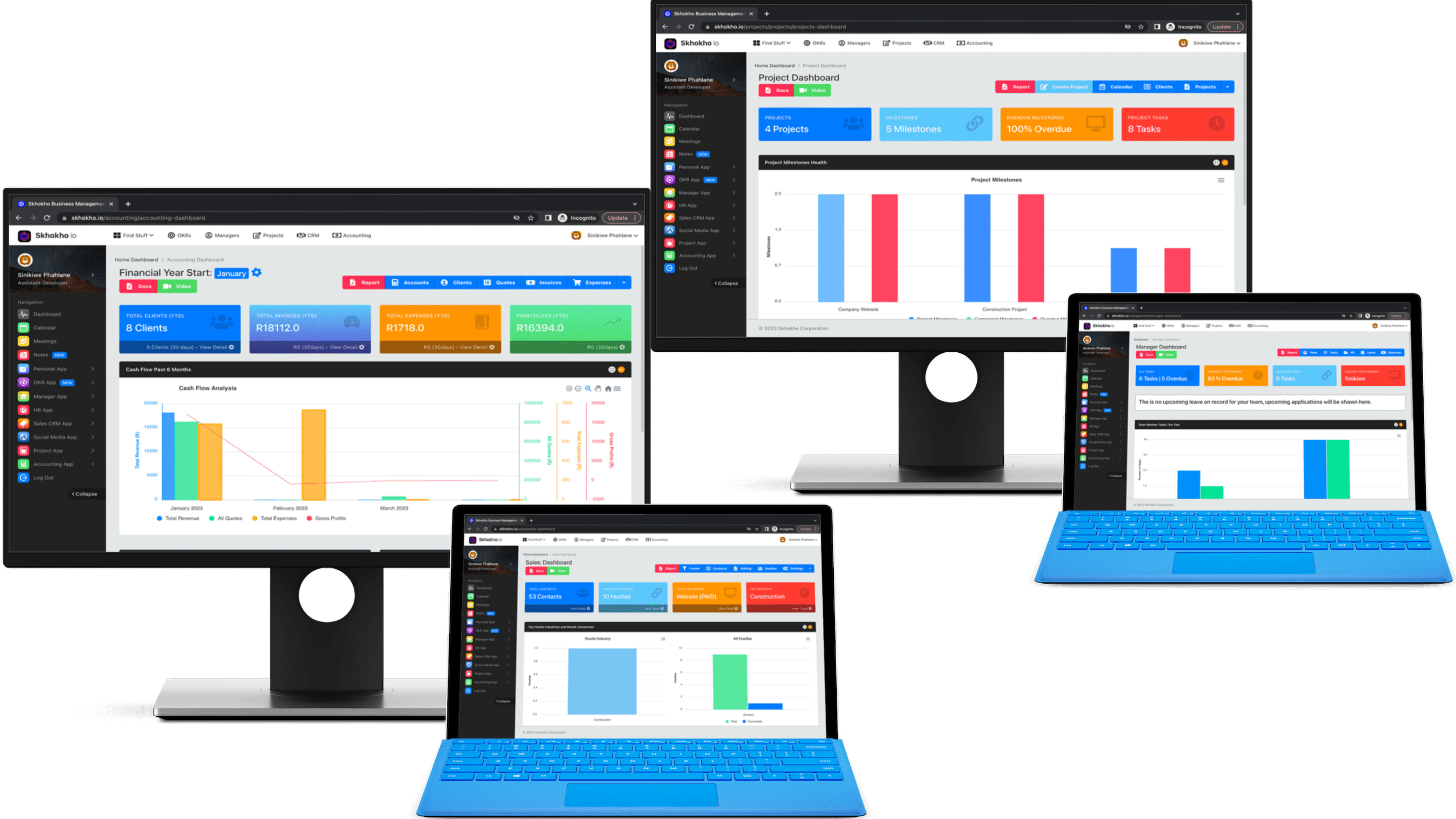The Importance of Data Analytics in Business Management
Data analytics has become a crucial aspect of modern business management, enabling companies to extract valuable insights from their data and make more informed decisions. With the proliferation of data in recent years, businesses have an unprecedented opportunity to gain a deeper understanding of their operations, customers, and market trends. However, leveraging data analytics effectively requires a combination of technical expertise, strategic planning, and a culture of data-driven decision-making.
In this article, we will explore the importance of data analytics in business management and discuss the key benefits, challenges, and best practices for implementing data analytics in your business. Whether you are a small start-up or a large corporation, understanding the role of data analytics in business management is essential for achieving success in today's digital age.

Definition of data analytics and its significance in business management
Data analytics is a vital tool in business management that allows companies to make data-driven decisions and gain valuable insights into their operations. It involves collecting, processing, and analyzing large volumes of data to identify patterns, trends, and opportunities for improvement. By leveraging data analytics, businesses can gain a competitive advantage, optimize their operations, and increase their bottom line.
Data analytics is a powerful tool for businesses that can provide valuable insights, improve decision-making, enhance customer satisfaction, and increase revenue and profitability. As such, it is becoming increasingly important for businesses of all sizes to invest in data analytics as part of their overall business strategy.
Understanding Data Analytics
Data analytics refers to the process of examining large and complex data sets to discover patterns, trends, and insights. The data is analyzed using various tools and techniques to uncover hidden relationships and identify opportunities for optimization and improvement.
There are several types of data analytics, each with its own purpose and methodology.
- Descriptive Analytics: This type of analytics provides a summary of historical data, helping to understand what has happened in the past. It includes techniques like data visualization, dashboards, and scorecards. Descriptive analytics can help businesses identify trends and patterns in their data, and provide insights for future decision-making.
- Predictive Analytics: This type of analytics uses statistical models and machine learning algorithms to make predictions about future events. It involves analyzing historical data to identify patterns and trends that can be used to forecast future outcomes. Predictive analytics can help businesses identify potential risks and opportunities and make better-informed decisions.
- Prescriptive Analytics: This type of analytics involves using data and algorithms to recommend actions that will optimize outcomes. It combines data from multiple sources, including historical data, real-time data, and external data, to provide recommendations for actions that can help achieve specific goals. Prescriptive analytics can help businesses identify the best course of action for achieving their objectives.

Data analytics can be applied in various areas of business management, such as:
- Marketing: Analyzing customer data to identify patterns and preferences, and create personalized marketing campaigns that improve engagement and sales.
- Operations: Analyzing production data to identify inefficiencies and optimize processes, reducing costs and improving productivity.
- Finance: Analyzing financial data to identify trends and make predictions, optimizing investments and managing risks.
- Human Resources: Analyzing employee data to identify talent gaps and make data-driven decisions about hiring and development.
In summary, data analytics is an essential tool for businesses to analyze large volumes of data, uncover insights, and make better-informed decisions. By using descriptive, predictive, and prescriptive analytics, businesses can optimize their operations, improve their bottom line, and gain a competitive advantage in the market.
The Benefits of Data Analytics in Business Management
Data analytics has become a vital tool for businesses of all sizes and industries, as it provides numerous benefits that can help improve operations, customer satisfaction, and profitability. Some of the key benefits of using data analytics in business management include:
- Improved Decision-Making: By using data analytics, businesses can make informed decisions based on accurate and up-to-date information. For example, data analytics can help managers identify the most profitable products, optimize pricing strategies, and forecast future demand. This can lead to better-informed decision-making and a competitive advantage in the market.
- Enhanced Operational Efficiency: Data analytics can help businesses identify inefficiencies in their operations and streamline processes to improve efficiency. For example, by analyzing production data, businesses can identify bottlenecks in the manufacturing process and optimize workflows to reduce costs and improve productivity.
- Better Customer Insights: Data analytics can help businesses gain a better understanding of their customers' needs, preferences, and behaviors. For example, by analyzing customer data, businesses can create personalized experiences for their customers, improve customer satisfaction, and increase customer loyalty.
- Increased Revenue and Profitability: By analyzing sales data and identifying patterns and trends, businesses can optimize their pricing strategies, increase sales, and improve their bottom line. In addition, data analytics can help businesses identify new markets, opportunities for growth, and areas for cost savings.

Key Challenges of Data Analytics in Business Management
While data analytics provides numerous benefits to businesses, there are also several challenges associated with its implementation in business management. Some of the key challenges include:
- Data Quality Issues: Data quality is essential for accurate and reliable data analysis. However, businesses may face challenges in ensuring the quality of their data due to issues such as incomplete or inconsistent data, inaccurate data, and outdated data.
- Lack of Skilled Staff: Data analytics requires specialized skills and expertise, and many businesses may struggle to find qualified staff to manage and analyze their data effectively.
- Data Privacy and Security Concerns: As businesses collect and store more data, there is an increasing risk of data breaches and cyberattacks, which can compromise sensitive customer information and damage the business's reputation.
To overcome these challenges, businesses can consider the following potential solutions:
- Data Quality Management: Businesses should implement processes to ensure data quality, such as regularly reviewing and cleaning their data, using standardized data formats, and ensuring data is properly labeled and classified.
- Training and Development: Businesses can invest in training and development programs to upskill existing staff or recruit new employees with the necessary skills and expertise.
- Data Privacy and Security Measures: Businesses can implement robust data privacy and security measures, such as using encryption, regularly backing up data, and restricting access to sensitive data.
In addition, businesses can also consider outsourcing data analytics to third-party providers, who may have specialized expertise and resources to manage and analyze data effectively. By overcoming these challenges, businesses can leverage data analytics to drive growth, innovation, and competitive advantage in their industries.
Implementing Data Analytics in Business Management
The successful implementation of data analytics in business management requires careful planning and a systematic approach. In this section, we will provide guidance on how businesses can effectively implement data analytics in their operations.
To begin with, it is important to set clear goals and define relevant metrics that will guide your data analysis efforts. This involves identifying the key performance indicators (KPIs) that are most critical to your business and establishing specific targets for these metrics. By setting measurable goals, you can track your progress and make data-driven decisions that align with your overall business objectives.
Collecting and storing data effectively is also a critical component of implementing data analytics in business management. This involves identifying the types of data that are most relevant to your business and determining how to best capture and store this data. In many cases, this may involve integrating data from multiple sources, such as customer relationship management (CRM) systems, marketing automation platforms, and accounting software. It is important to ensure that the data is accurate, consistent, and up-to-date to avoid potential errors or bias in your analysis.
Choosing the right data analytics tools and technologies is also key to successful implementation. There are a variety of data analytics tools available, each with its own strengths and weaknesses. It is important to select a tool or combination of tools that aligns with your business needs and goals. This may involve investing in a dedicated data analytics platform or leveraging existing software solutions that offer data analysis capabilities.
Finally, building a data-driven culture is essential for long-term success in data analytics. This involves creating an environment in which data is viewed as a valuable resource and where data analysis is an integral part of the decision-making process. It is important to provide training and support to employees to ensure that they have the necessary skills and expertise to effectively analyze and interpret data. Additionally, it is important to promote transparency and collaboration across departments to encourage the sharing of data and insights.
In closing, implementing data analytics in business management requires a strategic approach that involves setting clear goals, collecting and storing data effectively, choosing the right tools and technologies, and building a data-driven culture. By following these best practices, businesses can leverage data analytics to gain valuable insights and make more informed decisions, ultimately driving growth and success.

Management System Help a Business With Data Analytics: Business Analytics Tools
A business management software can help a business with data analytics in several ways. Firstly, it can provide a centralized platform for collecting and storing data, ensuring data quality and consistency. This makes it easier for businesses to access and analyze their data, as well as identify trends and patterns.
Best BMS for this has to be Skhokho Business Management Software.

Skhokho has integrated most important apps when running a business such as:
- HR & Payroll app
- Accounting app
- Sales CRM app
- Project management app
- Objectives Key Results app
- Social Media Scheduling
There's no denying that every business owner needs to stay on track as to how the business is performing. With a proper business software such as Skhokho, owners and directors of the business do not have to hire special business analysts to help with analysis, they can do it themselves.
Skhokho provides an intuitive dashboard interface for accounting, sales, and OKRs, which simplifies the tracking and analysis of data, no need for business analytics skills. With the ability to easily access and view key performance indicators, businesses can make data-driven decisions with greater confidence. Additionally, Skhokho's reporting feature allows for the printing of customized reports from these dashboards, streamlining the process of generating and sharing insights.

Whether you are a small business owner or a member of a larger team, Skhokho's user-friendly interface and reporting capabilities make it a valuable tool for improving performance and driving growth.
Register your free account today and take advantage of the 14 day free trial, no credit card information needed. For more information on how to use the system, click here.
Conclusion
In summary, data analytics plays a critical role in business management by providing valuable insights into customer behavior, operational efficiency, and overall performance. By leveraging data analytics, businesses can make more informed decisions, improve operational efficiency, gain better customer insights, and ultimately increase revenue and profitability.
However, implementing data analytics in business management can present several challenges, such as data quality issues, lack of skilled staff, and data privacy and security concerns. By implementing best practices such as effective data collection and storage, choosing the right tools and technologies, and building a data-driven culture, businesses can overcome these challenges and achieve success with data analytics.
In conclusion, data science is an essential tool for modern businesses seeking to drive growth, innovation, and competitive advantage in their industries. We encourage readers to consider the benefits of data analytics and explore how it can be used to achieve success in their own businesses.









